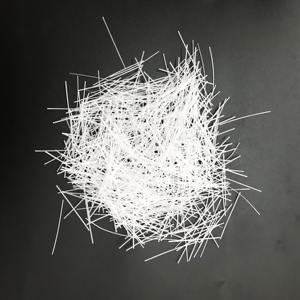Durable and versatile chemical fibers for textiles, composites, and more. Excellent quality, competitive rates, and reliable delivery.
The Scoop on Poop: Can You Mix Laxatives and Fiber Supplements?
(can you take a laxatives and fiber supplements)
That rumbling tummy. That frustrating feeling of being… stuck. Constipation is no joke. Many people reach for solutions like laxatives or fiber supplements. But a big question pops up. Can you take laxatives and fiber supplements together? Is it safe? Is it smart? Let’s unravel this digestive dilemma.
Main Product Keywords: Laxatives, Fiber Supplements
1. What Are Laxatives and Fiber Supplements?
Laxatives are substances designed to help you have a bowel movement. They come in different types. Stimulant laxatives (like senna or bisacodyl) make your intestines contract. Osmotic laxatives (like polyethylene glycol or magnesium salts) pull water into your bowels. Stool softeners make poop easier to pass. Lubricants grease the wheels. Fiber supplements are different. They are bulk-forming agents. Think psyllium husk, methylcellulose, or wheat dextrin. These supplements add soluble fiber to your diet. Soluble fiber absorbs water. It forms a soft gel in your gut. This gel adds bulk to stool. It makes stool softer and easier to move along. Fiber supplements work with your body’s natural rhythm. Laxatives often provide a quicker, sometimes forceful, push. Both aim for regularity but use different methods.
2. Why Consider Using Laxatives and Fiber Together?
Sometimes, one tool isn’t enough. Constipation can be stubborn. Fiber supplements need time and water to work effectively. If someone is severely constipated, fiber alone might not provide immediate relief. It could even make things feel worse initially. Adding bulk to already hard stool can cause more blockage or discomfort. This is where a laxative might step in. A gentle osmotic laxative can help soften hard stool. It can help move things along first. Then, introducing a fiber supplement becomes easier. The fiber can then help maintain regularity. It prevents future episodes. Using both might be a short-term strategy. It bridges the gap between immediate relief and long-term management. Doctors sometimes recommend this approach. It helps reset a sluggish system. It establishes a foundation for fiber to take over maintenance.
3. How to Safely Combine Laxatives and Fiber Supplements
Safety is crucial. Mixing these products requires care. Never just start taking both randomly. Always talk to your doctor or pharmacist first. They understand your health history. They know potential interactions with other medications. If combining is appropriate, timing is key. Do not take them at the exact same time. Fiber supplements can interfere with how your body absorbs other medications. This includes some laxatives. Space them out. Take the laxative as directed, often at bedtime. Take the fiber supplement at a completely different time, like with breakfast. Drink lots of water. This is non-negotiable. Fiber needs water to swell and work. Dehydration makes constipation worse. It can make laxatives less effective or even dangerous. Start with the lowest effective dose of each. Monitor how your body reacts. Listen to your gut. If you experience cramping, diarrhea, or severe discomfort, stop. Contact your healthcare provider. The goal is gentle relief, not a sprint to the bathroom.
4. Applications: When Might This Combo Be Useful?
Combining laxatives and fiber isn’t an everyday solution. It’s often for specific situations. One common scenario is chronic constipation management under medical guidance. A doctor might suggest a short course of a mild osmotic laxative. This clears a significant backlog. Then, they introduce a daily fiber supplement. The fiber helps prevent the backlog from reforming. Another application is preparing for medical procedures like colonoscopies. Prep instructions often include both strong laxatives and clear liquids. Fiber supplements are usually stopped days before. Post-procedure, gentle laxatives and fiber might be used temporarily. This helps restart normal bowel function smoothly. People recovering from surgery sometimes face constipation. Pain medications often cause it. A doctor might prescribe a stool softener or mild laxative initially. They might also recommend fiber once things start moving again. Travel or major routine changes can disrupt digestion. A short-term, careful combination might help get back on track. Always base this on professional advice, not guesswork.
5. FAQs About Mixing Laxatives and Fiber
People have many questions. Let’s tackle some frequent ones.
Can mixing them cause dependency? Relying long-term on stimulant laxatives can lead to dependency. Your bowels forget how to work on their own. Fiber supplements generally do not cause dependency. They support natural function. Using a laxative just to kickstart things briefly, then switching to fiber, minimizes this risk.
Will they cancel each other out? Not usually, if spaced properly. Taking them together might reduce the laxative’s effectiveness. Fiber could absorb it. Spacing prevents this problem. They work on different aspects of the process.
What about bloating and gas? Both can cause these, especially when starting. Fiber often causes gas as gut bacteria ferment it. This usually improves within a few weeks. Laxatives might cause cramping. Starting low and going slow helps. Increasing water intake is vital. If gas is severe, try a different type of fiber.
How long can I use them together? This is not a long-term plan. It’s usually a bridge lasting a few days to a couple of weeks. The aim is to transition to relying primarily on dietary fiber and lifestyle changes. Prolonged laxative use needs medical supervision.
Are there people who absolutely shouldn’t mix them? Yes. People with certain conditions must avoid this. This includes bowel obstructions, Crohn’s disease, ulcerative colitis, severe abdominal pain, nausea, vomiting, or sudden bowel habit changes. Anyone with kidney disease needs extreme caution with some laxatives. Always get medical clearance first.
(can you take a laxatives and fiber supplements)
What about natural laxatives like prunes? Prunes contain fiber and natural sugars that have an osmotic effect. They are a gentler option. Combining prunes with a fiber supplement is usually safer than mixing fiber with strong chemical laxatives. It’s still wise to introduce them gradually. Drink plenty of water.







